What is SAP? explained everything about what is SAP software systems.
What is SAP?
SAP is an ERP software package, and SAP stands for Systems, Applications and Products in data processing.
SAP is an ERP software application that integrates all the systems into one system and enables to flow the data or information from various departments of an organization.
SAP is a name of company and name of its product. The latest version of SAP systems is SAP R/3 ECC 6.0 EHP 8.
Features of SAP Software
- The main feature of SAP is integration, through integration of SAP software, the companies experiences greater efficiency and productivity.
- SAP software is ready to use i.e. Solutions are already developed for all departments in the form of modules.
- Each module of SAP is tightly integrate with other modules, so the flow of information across the department is default.
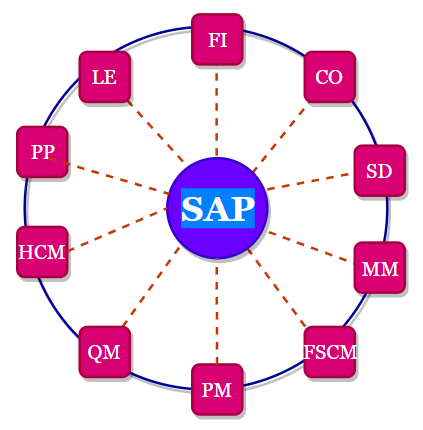
History & Evaluation of SAP
- SAP AG company was founded in the year 1972
- After one year, financial accounting introduced on the basis of R/1 system, where R stands for real time data processing.
- SAP R/2 system supports different languages and currencies,
- In the year 1992, a new version of SAP R/3 was launched with new technical features R/3 is referred as three tier architecture.
- At present ERP SAP package holds more than 75% share in the market and rest of percentage is shared by all other ERP packages.
- SAP software stands as number one in world business process.
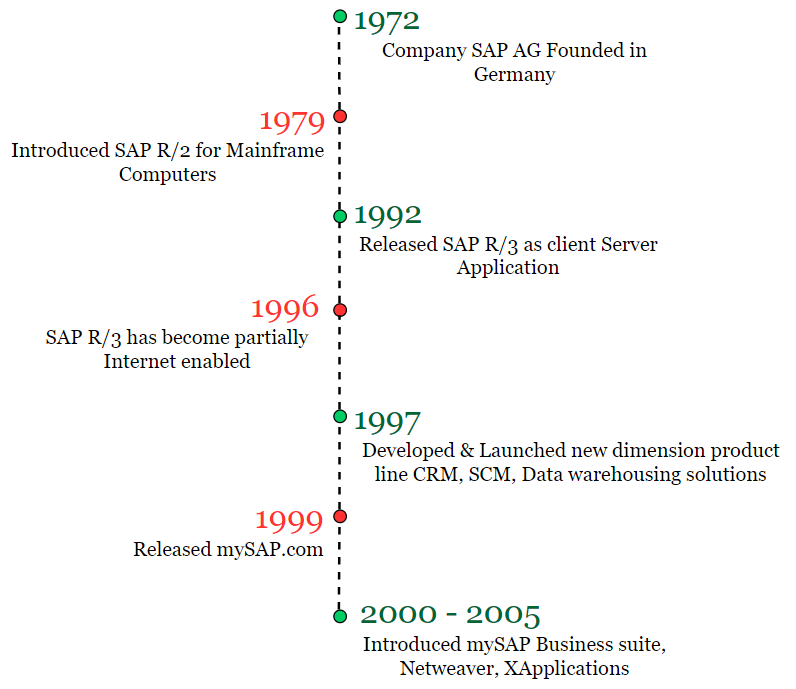
Why SAP Systems
- SAP is rated as one of the best ERP software.
- SAP is full integrated and modular structure
- Providing maximum flexibility
- Supports multi languages
- OSS supports available
- Single point of data entry and impact on entire SAP systems
- Easy to integrate with e-commerce
- Provides simplified business solutions
- Provides authorizations as per roles & responsibilities.
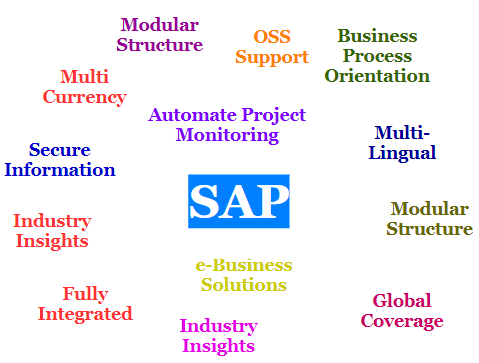
Versions in SAP
The different versions of SAP are released from year to year.
| SAP Version | Released Year |
| SAP R/2 | 1992 |
| SAP R/3 1.0 | 1992 |
| SAP R/3 2.0, 2.1 | 1997 |
| SAP R/3 3.0B, C, E, G, 3.1G | 1998 |
| SAP R/3 4.0A | 1998 |
| SAP R/3 3.0D | 1998 |
| SAP R/3 3.0F | 1998 |
| SAP R/3 3.1H | 1998 |
| SAP R/3 3.1I | 1998 |
| SAP R/3 4.0B | 1998 |
| SAP R/3 4.5A | 2000 |
| SAP R/3 4.5B | 2000 |
| SAP R/3 4.6A | 2001 |
| SAP R/3 4.6B | 2001 |
| SAP R/3 4.6C | 2001 |
| SAP R/3 4.7 | 2003 |
| SAP ECC 5.0 | 2004 |
| SAP ECC 6.0 | 2005 |
Modules in SAP
SAP systems provides different types of modules to handle all the business activities of an organization. The modules in SAP are two types, i.e.
- Functional Modules
- Technical Modules
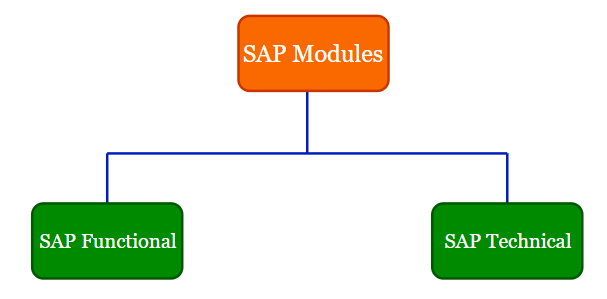
Each module in SAP is integrated with each other to share the common information. The important modules of SAP are
- Financial Accounting
- Controlling
- Sales and Distribution
- Material Management
- Financial supply chain management
- Production Planning
- Human Capital Management
- Quality Management
- Plant Maintenance
- Warehouse Management
- Project Systems.
Now let’s discuss each SAP module in detail one by one.
SAP Financial Accounting (SAP FI):
SAP FI (Financial Accounting) module is a backbone of an organization, as it manages financials and controlling activities of an organization. It records all the transactions on day to day basis and generates financial reports as per requirements.
SAP Controlling (SAP CO):
SAP CO (Controlling) module is a part of SAP FICO (Financial Accounting & Controlling). SAP CO helps in planning, reporting, managing and monitoring business operations of an organization.
SAP Sales and Distribution (SAP SD):
SAP SD (Sales & distribution) is one of the important application area of logistics. SD handles all the activities of Sales and Distribution of an organization. SAP SD module can be integrated with other modules of Material management, Financial accounting , Production planning, etc.
SAP Material Management:
SAP MM (Material Management) is a core component of supply chain. MM module deals with all the activities of procurement, material storage, consumption based planning and inventory. SAP MM module can be integrated with other modules of financial accounting, controlling, sales & distribution, plant maintenance, warehouse management, etc.
SAP Human Capital Management (SAP HCM)
SAP HCM (Human Capital Management) is also known as Human Resource Management (HRM) module. SAP HCM module is responsible for managing resources, identify needs and necessity of man power, employee satisfaction, payroll management, etc.
SAP Architecture
SAP R/3 system runs on one common database, so that the information or data that is entered in the SAP system by one department of an organization is immediately available to all departments of an organization. For example, If you enter vendor information in SAP, the information is immediately available to other departments such as Finance, Human Resource, Materials Management, etc.
SAP Architecture is based on Real Time with 3 client server Architecture (R/3), i.e.
- Presentation Layer
- Application Layer
- Database Layer
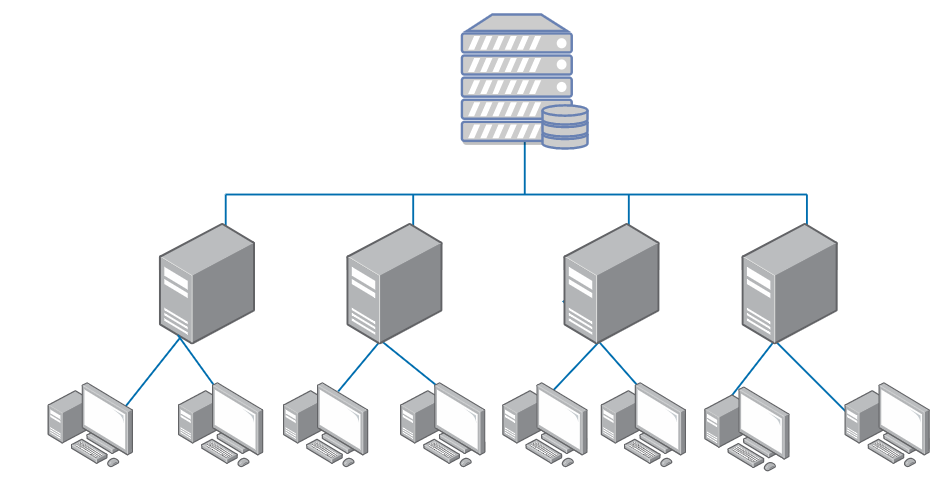
SAP Landscape
Every implementation of SAP project goes through deployment phases. Different types of systems are used to implement a project. SAP Landscape is a arrangement of server for implementation of Projects. SAP systems landscape includes the following environments
- Development System
- Test & Quality assurance system
- Production System.
Accelerated SAP Methodology
ASAP (Accelerated SAP Methodology) is a roadmap tool used to designed SAP implementation process in an effective manner. The main goal of ASAP is to optimize time, people, quality and resources. It consists the following stages
- Project Preparation
- Business Blueprint
- Realization
- Final Preparation
- Go live & Support
- Continuous Improvement.
Advantages of SAP
- SAP provides solutions for all departments in an organization
- SAP is an integrated products and each module in SAP can be integrated with other modules of SAP. If you process transaction in one department and it is automatically updated that particular information in other department where it is required.
- SAP software is suitable for all types of company sizes i.e. Large companies, Medium companies and small size companies.

